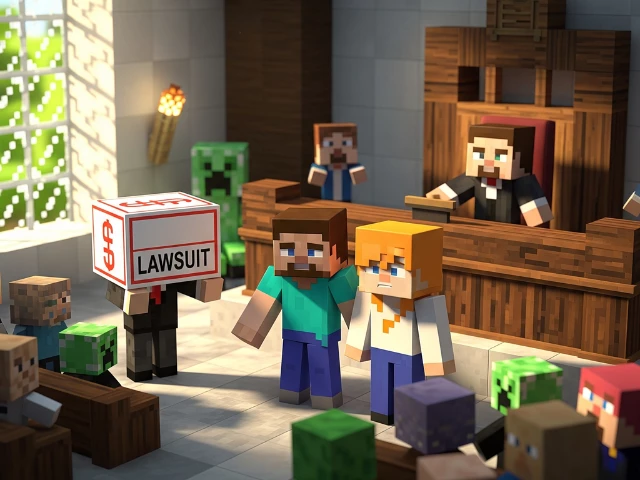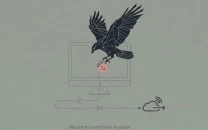Minecraft faces a class-action storm: small creator vs. Mojang and Microsoft
A Swedish YouTuber is suing Minecraft for hidden rules, secretive contract changes, coerced data migration, and more

A viral YouTube video titled “WE’RE SUING MOJANG” has set off one of the most unusual legal challenges Minecraft’s creators have faced. Kian Brose, a small developer and content creator, announced in his follow-up video that he has raised $150,000 through a GoFundMe page to finance a class-action lawsuit in Sweden against Mojang, the Swedish studio behind Minecraft, and its parent company, Microsoft. Brose alleges Mojang violated European consumer protection laws, and he’s rallying players to join his cause
The core allegations
Brose’s video claims Mojang changed its End User License Agreement (EULA) 47 times without properly notifying users, enforced hidden internal rules that weren’t part of its official terms, and even partnered with Nerf on toy guns while allegedly banning gun-like content for independent creators. The most serious accusation is that Mojang forced account migration from Mojang to Microsoft accounts, threatening to cut off paying customers who refused. Brose argues this coerced players into handing personal data to Microsoft under new terms they never freely accepted, potentially breaching EU consumer law and the GDPR’s standard for “freely given” consent.
How the case is being built
The video weaves an emotional narrative, Brose’s own losses, screenshots of enforcement emails, excerpts of internal documents, and a legal framing presented by attorney Björn Pacha. It ends with a call to action: affected players can join the lawsuit or submit evidence of harm. The case will be opt-in, meaning only players who explicitly join will be represented. This approach could help Brose’s team collect specific examples of damages, a key factor in strengthening their claim.
Community and industry reaction
Reaction has split the Minecraft community, many server admins and players donated and amplified Brose’s campaign, seeing it as a chance to hold Microsoft accountable. Gaming blogs like Sportskeeda have covered the dispute, framing it as a digital-rights battle. But skepticism is loud on Reddit and other forums: some argue that Microsoft provided a three-year migration window, that continued play signaled consent, and that winning against a tech giant with limitless legal resources will be a steep climb. Others question whether a crowdfunded class action can maintain transparency and sustained funding.
Explainers / aggregated summaries (BisectHosting, Sportskeeda, etc.) that map the origin story (gun-mod → EULA → lawsuit). These are examples of blogs tracing and following the lawsuit and it's story.
Legal and strategic context
Sweden’s group-action rules, recently updated under EU collective-redress directives, make it a logical venue: Mojang is Swedish, and EU consumer protections restrict unilateral contract changes that disadvantage customers. GDPR rules also heighten scrutiny of forced data transfers. Yet Microsoft’s defense will likely hinge on standard industry arguments: users had reasonable notice, the migration was a legitimate business consolidation, and enforcement discretion isn’t evidence of bad faith. Even if the case clears procedural hurdles, Swedish group actions are notoriously slow and expensive.
EU / Sweden class-action & consumer law context (collective redress / recent implementation) provides more insight into the Swedish legal system and how it may treat this circumstance.
Possible outcomes
Experts suggest four likely scenarios:
-
Policy Tweaks or Settlement: Microsoft could quietly adjust terms or offer compensation to avoid setting a precedent and incurring bad PR.
-
Procedural Victory for Mojang: The case might be dismissed early if courts find that users consented or that damages aren’t clear.
-
Discovery and Regulatory Scrutiny: Surviving initial challenges could expose Mojang’s internal policies and draw the attention of EU regulators.
-
Symbolic Win for Digital Rights: Even without a courtroom victory, Brose’s campaign has already forced public debate on digital ownership and platform accountability.
The bigger picture
The lawsuit underscores a growing tension between game publishers’ control over live-service titles and players’ sense of ownership. Minecraft, arguably the most influential sandbox game ever, has always thrived on community creativity. Brose’s campaign demonstrates how the same community can leverage public outrage and crowdfunding to challenge corporate practices. Whether this legal gambit ends in a landmark judgment, a quiet settlement, or fizzles under Microsoft’s legal firepower, it’s already changed the conversation around digital consumer rights.




















COMMENTS
Comments are moderated and generally will be posted if they are on-topic and not abusive.
For more information, please see our Comments FAQ